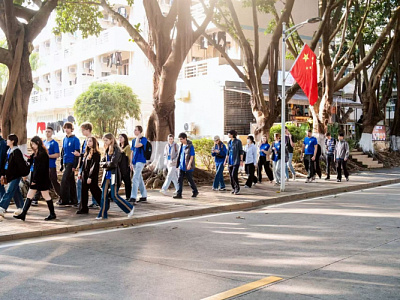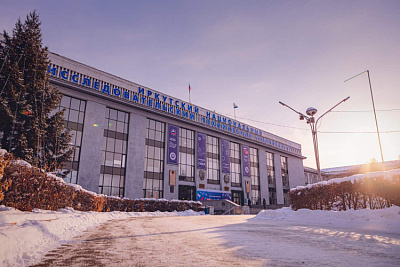An innovative solution to the problem of antibiotic contamination of soil and water was proposed by INRTU scientists
Scientists of Irkutsk National Research Technical University are successfully implementing a project in the field of phytoremediation - treatment of wastewater and water bodies, soils and atmospheric air using plants. The project "Technogenic risks of the Baikal region" received grant support from the Scientific Council of INRTU.
The research team led by the head of the Department of Industrial Ecology and Life Safety of INRTU, Doctor of Technical Sciences, Academician of the Russian Academy of Natural Sciences Svetlana Timofeeva conducted a research work, thanks to which it is possible to take a serious step in solving an urgent global problem - pollution with antibiotics of the environment.
The press release notes that the current active use of antibiotics for the treatment of people, animals, livestock and aquaculture from infectious diseases leads to the fact that after application, their residual amounts with solid and liquid waste end up in the natural environment. Thus, potential environmental risks are created directly for humans, animals and components of biocenoses. The increasing demand for animal protein also stimulates the use of intensive forms of antibiotics in agriculture, which leads to their accumulation in animal products and, as a result, to the resistance of organisms to antibiotics.
The negative impact of antibiotic residues accumulating in soils and water bodies has on the yield of agricultural land. They are absorbed by plants, thereby interfering with physiological processes and causing potential ecotoxicological effects. Numerous tests for chronic and acute toxicity have revealed the effect of antibiotics on photosynthesis and mitochondria of plants, as well as delayed germination or reduction of biomass of crops.
Turning to this problem, INRTU scientists decided to find out what phytoxic properties the antibiotic bicillin, used in medical practice, including veterinary medicine, has. In their work, they used bicillin-3, a combined antibacterial drug of the penicillin group. It belongs to the penicillins of natural origin.
Seeds of technical cannabis Cannabis sativa L. 1753, watercress Lepidium sativum L. 1753, known as a marker of antibiotic contamination, Oryza sativa L. 1753 seed rice as a potential component of plant microbial elements, as well as the aquatic plant Elodea Canadensis M., which was selected on the Angara River, were used as test organisms for testing the phytotoxicity of bicillin.
During the research work, scientists of Irkutsk Polytechnic University determined that bicillin is toxic to watercress in the concentration range from 0.5 to 100 mg/l and is low toxic to rice and hemp. At the same time, the high concentration of bicillin in the soil stimulates the growth of plant roots.
The results of the research work of Irkutsk scientists allow us to consider phytoremediation as one of the inexpensive solutions for removing antibiotics from the aquatic environment. In this regard, according to the scientific team of INRTU, it is necessary to continue research on the creation of flexible phytoengineering systems for cleaning environmental objects from antibiotics in the soil and aquatic environment.



